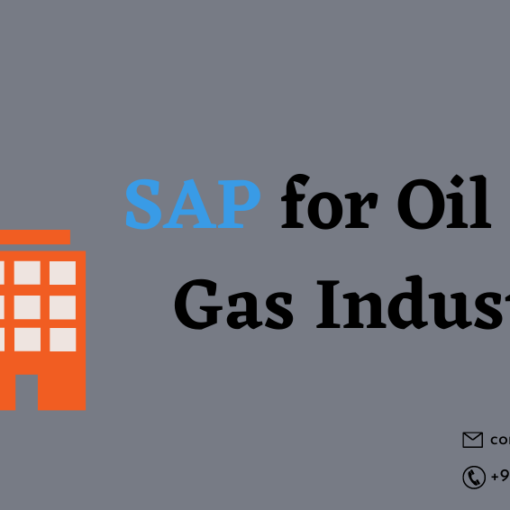In today’s data-driven business landscape, organizations are constantly seeking ways to extract valuable insights from their vast datasets. Data analytics has emerged as a crucial tool in this pursuit, helping businesses make informed decisions, optimize processes, and gain a competitive edge. Among the leading solutions in the realm of data analytics is SAP Analytics, a powerful platform that enables organizations to leverage their data for actionable business insights. In this blog, we will explore the impact of SAP Analytics and how it empowers businesses to harness the full potential of their data.
Unraveling the Impact of SAP Analytics
SAP Analytics is a comprehensive suite of tools and solutions designed to address the diverse analytics needs of businesses. Whether you’re looking to perform financial analysis, track supply chain performance, monitor sales trends, or delve into customer behavior, SAP Analytics provides a wide range of capabilities to support your data-driven decision-making process.
1. Enhanced Decision-Making
One of the primary benefits of SAP Analytics is its ability to turn raw data into meaningful information. By aggregating, analyzing, and visualizing data in real-time, organizations can gain deeper insights into their operations, customer behavior, and market trends. This enables informed decision-making at all levels of the organization.
2. Self-Service Analytics
SAP Analytics empowers non-technical users to explore and analyze data independently. With user-friendly interfaces and intuitive dashboards, business users can create their reports and visualizations, reducing the burden on IT departments and accelerating the decision-making process.
3. Data Integration
SAP Analytics seamlessly integrates with other SAP solutions and a wide range of third-party data sources. This ensures that businesses can leverage all their data assets, whether they reside in ERP systems, CRM platforms, IoT devices, or external databases. The ability to access and analyze data from various sources provides a holistic view of the business, enabling more accurate and comprehensive insights.
4. Predictive Analytics
Predictive analytics is a game-changer in today’s competitive landscape. SAP Analytics includes advanced predictive modeling capabilities that enable organizations to forecast future trends, identify potential risks, and seize opportunities before they arise. This proactive approach to decision-making can have a substantial impact on a company’s bottom line.
5. Real-Time Analytics
In today’s fast-paced business environment, real-time insights are invaluable. SAP Analytics leverages in-memory processing and advanced data caching to provide real-time analytics capabilities. This allows organizations to monitor their operations, respond to changing market conditions, and make timely decisions.
Real-World Impact
Let’s delve into a few real-world scenarios where SAP Analytics has made a significant impact:
1. Supply Chain Optimization
A manufacturing company using SAP Analytics optimized its supply chain by analyzing historical demand patterns, production data, and logistics information. By identifying bottlenecks and inefficiencies, the company reduced lead times, minimized excess inventory, and improved customer satisfaction.
2. Enhanced Customer Experience
A retail organization utilized SAP Analytics to gain insights into customer preferences and shopping behavior. By analyzing purchase history and social media interactions, they personalized marketing campaigns, resulting in a 20% increase in sales and improved customer loyalty.
3. Financial Performance Management
A financial institution streamlined its financial reporting and budgeting processes with SAP Analytics. The platform’s capabilities allowed them to consolidate data from multiple branches and generate real-time financial reports. This led to better financial transparency and more accurate decision-making.
Conclusion
In today’s data-driven era, SAP Analytics has emerged as a critical tool for businesses seeking to harness the power of their data. Its ability to provide enhanced decision-making, self-service analytics, data integration, predictive analytics, and real-time insights has a profound impact on organizations across various industries.
To stay competitive and thrive in a rapidly evolving business landscape, it’s imperative for businesses to leverage SAP Analytics to unlock valuable insights, drive innovation, and make data-driven decisions that can propel them ahead of the competition. As we look to the future, SAP Analytics will continue to play a pivotal role in helping organizations navigate the complexities of the modern business world and make data their most valuable asset.
Free Bonuses:
SAP BI (Business Intelligence)
Exploring the Benefits of SAP Consulting for Small Businesses





